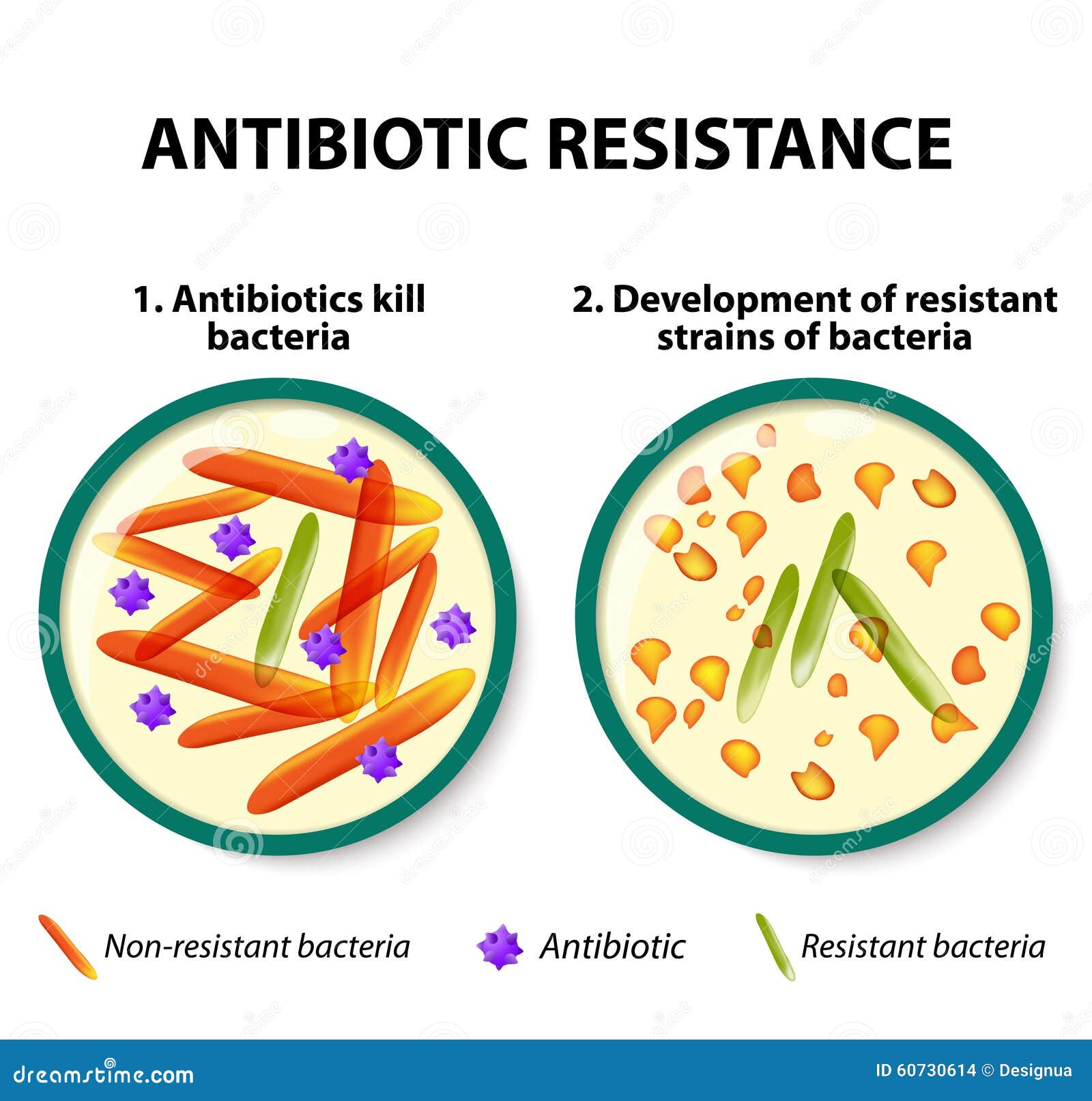Drug-resistant bacteria are an escalating threat to global health, rendering common bacterial infections increasingly difficult to treat. As these pathogens evolve and develop resistance mechanisms, the effectiveness of existing antibiotics diminishes, leading to a rising tide of drug-resistant infections. In response to this urgent crisis, startups like Kinvard Bio are at the forefront of developing new antibiotics designed to combat antimicrobial resistance. Their innovative compounds show promise in targeting resilient strains of these harmful bacteria, ultimately aiming to restore effective treatment options for patients worldwide. The exponential increase in antibiotic resistance underscores the critical need for groundbreaking research and development in the fight against these formidable microorganisms.
The challenge of antibiotic-resistant germs has emerged as one of the most pressing health issues of our time, necessitating a shift toward innovative solutions in infectious disease management. Often referred to as superbugs, these resilient microorganisms create a significant barrier in successfully treating routine infections. In this context, new therapeutic options are being explored, particularly through the lens of cutting-edge biotechnological advancements. Companies like Kinvard Bio are spearheading efforts to design antibiotics that not only effectively eliminate drug-resistant infections but also pave the way for sustainable strategies against antimicrobial resistance. As research thrives, the journey to discover next-generation antibacterials shines a hopeful light on what many consider a global health emergency.
The Rise of Drug-Resistant Bacteria
The emergence of drug-resistant bacteria represents a serious public health threat, significantly complicating the treatment of bacterial infections. These pathogens, which have acquired resistance to available antibiotics, pose a challenge in both hospital settings and the community, resulting in prolonged illness and increased healthcare costs. The World Health Organization has declared antimicrobial resistance as one of the top ten global public health threats facing humanity. As these bacteria evolve and develop new resistance mechanisms, medical professionals face a daunting task in treating infections that were once easily manageable.
To combat drug-resistant bacteria, researchers emphasize the urgent need for novel therapeutic approaches and the discovery of new antibiotics. Kinvard Bio is at the forefront of this search, leveraging cutting-edge synthetic chemistry to explore new compounds that can outmaneuver the resistance mechanisms exhibited by these stubborn pathogens. Innovations in this field are vital not only for treating existing infections but also for preventing potentially fatal outcomes associated with untreatable bacterial strains.
Innovations in Developing New Antibiotics
Kinvard Bio is developing a new class of antibiotics with the potential to effectively tackle drug-resistant infections. Their research highlights the critical importance of new chemical entities that can overcome current resistance mechanisms. The oxepanoprolinamides envisioned by Kinvard Bio are structurally unique and designed for enhanced binding to bacterial ribosomes, the target responsible for protein synthesis in bacteria. Such innovations could pave the way for breakthroughs in treating conditions that are currently deemed untreatable.
The slow pace of antibiotic approval in recent years, with only a handful of new classes being released, underscores the necessity of maintaining a robust pipeline for antibiotic candidates. By addressing urgent health challenges through innovative approaches designed for new antibiotics, Kinvard Bio exemplifies the commitment to enhancing treatment options for patients struggling with bacterial infections. This aligns with broader efforts in the biopharmaceutical industry and academia to tackle the pressing issue of antimicrobial resistance.
The Role of Kinvard Bio in Combating Antimicrobial Resistance
As a biotech startup emerging from Harvard University’s Myers Lab, Kinvard Bio is poised to make significant contributions to the fight against antimicrobial resistance. With a focus on developing antibiotics that specifically target resistant bacteria, the company harnesses decades of research and expertise to move effective solutions forward. The collaboration with cutting-edge institutions not only enhances their research and development capabilities but also helps to secure vital funding to push new products toward clinical trials.
The founders of Kinvard Bio have emphasized their dedication to finding effective treatments for patients suffering from drug-resistant infections. The partnership with the Blavatnik Biomedical Accelerator and financial support from CARB-X reflect a strong commitment to addressing this pressing global health crisis. Their work symbolizes hope for a future where new antibiotics are readily available to safely treat infections that are currently challenging to manage.
Targeting the Bacterial Ribosome with Kinvard Bio’s Antibiotics
Kinvard Bio’s innovative approach focuses on binding to the bacterial ribosome, which is a crucial target demonstrated to be effective across a wide range of pathogens. By optimizing the binding mechanisms of their new antibiotics, Kinvard aims to achieve prolonged efficacy against drug-resistant bacteria. This targeted strategy contrasts with older antibiotics and aligns perfectly with the ongoing need to develop drugs that can function in the face of evolving bacterial resistance.
The unique binding characteristics of Kinvard Bio’s oxepanoprolinamides promise a transformative approach in treating stubborn infections linked to respiratory conditions and urinary tract infections. The emphasis on addressable antibiotic targets, particularly those validated by current clinical knowledge, bodes well for future developments in the antibiotic landscape. Achieving better outcomes for patients relies on such advancements in drug design, especially in light of the pressing challenges posed by antimicrobial resistance.
Understanding Antimicrobial Resistance Mechanisms
To develop effective antibiotics, it is essential to understand the various mechanisms through which bacteria develop resistance to existing drugs. Resistance can arise from genetic mutations, the acquisition of resistance genes from other bacteria, or changes in membrane permeability that reduce drug uptake. As researchers delve into these complexities, they can better design drugs that circumvent these barriers, ensuring a higher success rate in treating resistant infections.
Kinvard Bio’s research underscores the importance of ongoing investigations into bacterial resistance mechanisms. By pinpointing how drug-resistant bacteria operate, they can fine-tune their antibiotic designs to maximize potency and minimize the risk of further resistance development. Such proactive strategies are critical in ensuring that future generations of antibiotics remain effective against emerging bacterial threats.
The Need for Collaboration in Antibiotic Development
Addressing the urgent challenge posed by drug-resistant bacteria requires collaborative efforts between researchers, healthcare providers, and the biopharmaceutical industry. Organizations like Kinvard Bio foster innovation by combining the expertise of chemists, biologists, and clinical researchers, fostering an environment conducive to groundbreaking discoveries in antibiotic therapy. Partnerships with universities and funding agencies also play a critical role in translating laboratory results into viable clinical solutions.
By leveraging collective knowledge and resources, researchers can tackle the complexities of drug development more effectively. Collaborative initiatives not only enhance innovation but also facilitate the sharing of vital information among stakeholders, ensuring that the development of new antibiotics is swift and impactful. Kinvard Bio epitomizes this collaborative spirit, showing how synergistic partnerships can lead to breakthroughs in the fight against antimicrobial resistance.
The Future of Antibiotic Discovery
The horizon of antibiotic discovery is brightening, especially with emerging biotechnology firms dedicated to solving the antimicrobial resistance crisis. As Kinvard Bio’s innovative compounds move closer to clinical application, there is renewed optimism in the potential to treat infections that had previously eluded conventional antibiotics. The ongoing support from organizations dedicated to combating antibiotic resistance ensures that research and development continue to receive the focus and funding they require.
With advancements in synthetic chemistry and molecular design, new antibiotics can be developed not only to treat infections effectively but also to minimize side effects and resistance development. The future landscape of antibiotic therapies could lead to personalized medicine approaches that cater to individual patient profiles, maximizing treatment efficacy and safety. Kinvard Bio’s contributions mark a vital phase in this evolution, promising novel solutions that could substantially benefit public health.
The Importance of Funding in Antibiotic Research
Securing funding for antibiotic research is crucial given the high costs and lengthy timelines involved in bringing new drugs to market. Investors’ interest in Kinvard Bio highlights the significance of financial backing in fostering innovative approaches to drug development. Collaboration with federal agencies and private investors has been instrumental in providing the necessary resources to cover research costs, laboratory operations, and eventual clinical trials.
Moreover, funding from programs like CARB-X underscores a national and global recognition of the importance of combating antimicrobial resistance through innovative solutions. These financial supports empower companies like Kinvard Bio to explore uncharted territories in drug discovery and to develop new antibiotics with the potential for significant therapeutic impact. Overall, investment in antibiotic research represents a commitment to public health that transcends individual interests.
Conclusion: A New Era for Antibiotic Treatment
As the world faces an escalating crisis due to drug-resistant bacteria, the emergence of companies like Kinvard Bio signals a pivotal shift toward innovative antibiotic solutions. With an unwavering focus on developing new classes of antibiotics, they embody the spirit of discovery needed to ensure effective treatments for bacterial infections. Their efforts could redefine guidelines for managing infections, particularly those affected by resistance.
The journey of Kinvard Bio from research lab to biotech startup exemplifies the essential role played by academia and industry partnerships in responding to pressing health challenges. With the promise of new antibiotics that can combat drug-resistant infections, there is renewed hope for curtailing the impact of antimicrobial resistance on global health. A multi-faceted approach combining research, funding, and collaborative efforts will be crucial in securing a healthier future for all.
Frequently Asked Questions
What are drug-resistant bacteria and why are they a major health concern?
Drug-resistant bacteria are microorganisms that have developed resistance to the effects of antibiotics, making them difficult to treat. This resistance often arises from overuse or misuse of antibiotics, leading to a significant global health crisis. According to the World Health Organization, antimicrobial resistance is responsible for over a million deaths annually, creating a pressing need for new solutions.
How is Kinvard Bio addressing the issue of drug-resistant bacteria?
Kinvard Bio is developing a new class of antibiotics designed specifically to combat drug-resistant infections. Their innovative compounds, known as oxepanoprolinamides, target the bacterial ribosome in a unique way, optimizing binding and effectiveness against pathogens that have become resistant to existing treatments. This approach represents a vital step in our fight against antimicrobial resistance.
What role do new antibiotics play in combating drug-resistant infections?
New antibiotics are crucial in the battle against drug-resistant infections as they provide alternative treatment options when existing antibiotics fail. With only a few new classes approved in recent years, the development of innovative antibiotics like those from Kinvard Bio is essential to replenish the arsenal of medicines available to healthcare providers.
Why is understanding antimicrobial resistance important for developing new antibiotics?
Understanding antimicrobial resistance is vital for developing new antibiotics as it helps scientists identify the mechanisms by which bacteria resist treatment. This knowledge allows researchers, such as those at Kinvard Bio, to design antibiotics that can effectively bypass these resistance strategies, ensuring better outcomes in treating bacterial infections.
What are oxepanoprolinamides and how do they work against drug-resistant bacteria?
Oxepanoprolinamides are a new class of antibiotics developed by Kinvard Bio that specifically target the bacterial ribosome. By binding to this crucial component with a unique structure, they aim to overcome the resistance mechanisms employed by drug-resistant bacteria, making them effective against a broader range of infections, including those resistant to current treatments.
How long have researchers at Harvard been working on solutions for drug-resistant bacteria?
Researchers at Harvard’s Myers Lab have been working on developing new solutions for drug-resistant bacteria for over a decade. Their research has focused on creating new antibiotic compounds that can effectively address the growing challenges posed by antimicrobial resistance, building on the foundations laid since the discovery of penicillin.
What is the significance of the funding received by Kinvard Bio for combating antimicrobial resistance?
Kinvard Bio has received significant funding, including a $1.2 million grant from CARB-X, which supports innovations in antibiotic development. This funding is crucial for advancing their research and clinical trials, allowing them to tackle drug-resistant infections and fulfill a critical need in global health.
How can new antibiotics, like those developed by Kinvard Bio, impact hospital admissions?
New antibiotics can significantly reduce hospital admissions by providing effective oral treatments for conditions like bacterial pneumonia and urinary tract infections. By allowing patients to be treated outside of a hospital setting, these antibiotics can lower the risk of acquiring additional infections during hospital stays and improve overall patient outcomes.
What specific types of infections are Kinvard Bio’s new antibiotics aimed at treating?
Kinvard Bio’s new antibiotics are initially focused on treating acute and chronic infections with high unmet needs, such as bacterial pneumonia, complicated urinary tract infections, and chronic respiratory infections. These areas represent critical challenges in current medical practices due to rising drug resistance.
How do innovations in synthetic chemistry contribute to the development of antibiotics against drug-resistant bacteria?
Innovations in synthetic chemistry are vital for developing new antibiotics, as they allow scientists to design and construct complex molecules that can effectively target drug-resistant bacteria. The Myers Lab’s research exemplifies this approach, enabling the creation of antibiotics that are structurally optimized for better performance against established resistance mechanisms.
| Key Aspect | Details |
|---|---|
| Drug-Resistant Bacteria | Currently, antibiotic resistance is a severe health crisis, causing over a million deaths globally in 2019. |
| Kinvard Bio | A startup from Harvard focused on developing new classes of antibiotics targeting drug-resistant infections. |
| Antibiotic Development | Only a dozen antibiotics were approved between 2017-2022, highlighting the slow pace of innovation. |
| Mechanism of Action | Antibiotics work by damaging bacterial structures; however, bacteria develop resistance through various mechanisms. |
| Research Focus | Kinvard Bio’s antibiotics target the bacterial ribosome, aiming to avoid pre-existing resistance. |
| Funding and Support | Kinvard Bio received funding from the Blavatnik Biomedical Accelerator and CARB-X to continue research. |
Summary
Drug-resistant bacteria present a global health crisis that requires immediate attention and innovative solutions. Firms like Kinvard Bio are pioneering new antibiotics to combat these resistant strains by targeting bacterial structures in novel ways. With increasing resistance to existing treatments, the development of new antibiotics is more critical than ever. Continuous research, funding, and collaboration between scientific and medical communities will be essential to address the challenges posed by drug-resistant bacteria effectively.




